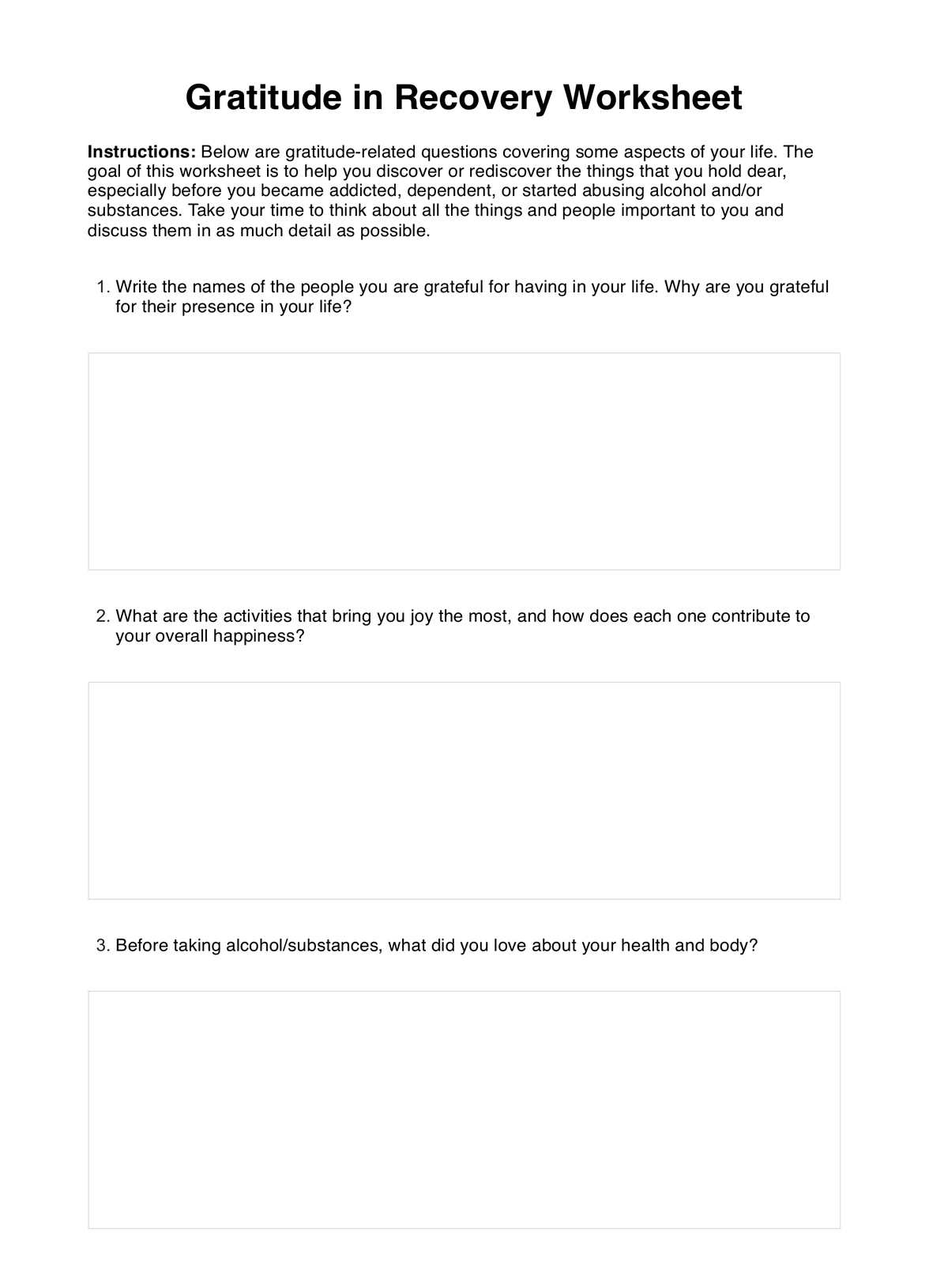If you're a rehabilitation specialist, it's important to discuss this matter with your patient. Each patient's progress may vary, with some able to complete it in as little as ten to twenty minutes, while others may require hours or even days. This is especially true for those recovering from addiction, dependence, and/or substance abuse. It's crucial not to rush the recovery process, just as it's important not to rush the completion of this worksheet. We strongly recommend allowing your patient the time and space to complete it at their own pace.

Gratitude in Recovery Worksheet
Remember what you’re grateful for during or after recovery using the Gratitude in Recovery Worksheet.
Gratitude in Recovery Worksheet Template
Commonly asked questions
No. The worksheet doesn’t demand much or require anything special. Those engaging with it only need to write down their answers with a pen or by typing on a keyboard/touchscreen. Whatever difficulty may arise will come from the person using the sheet.
Yes. While we may give the impression that this worksheet is for healthcare professionals, our template is free, so you may download it for yourself, even if you’re a non-healthcare professional.
If you believe that this worksheet can help you work through your alcohol/substance, feel free to download our template! We do recommend seeking help from healthcare professionals if you’re addicted, dependent, or abusing alcohol and want to stop.
EHR and practice management software
Get started for free
*No credit card required
Free
$0/usd
Unlimited clients
Telehealth
1GB of storage
Client portal text
Automated billing and online payments











